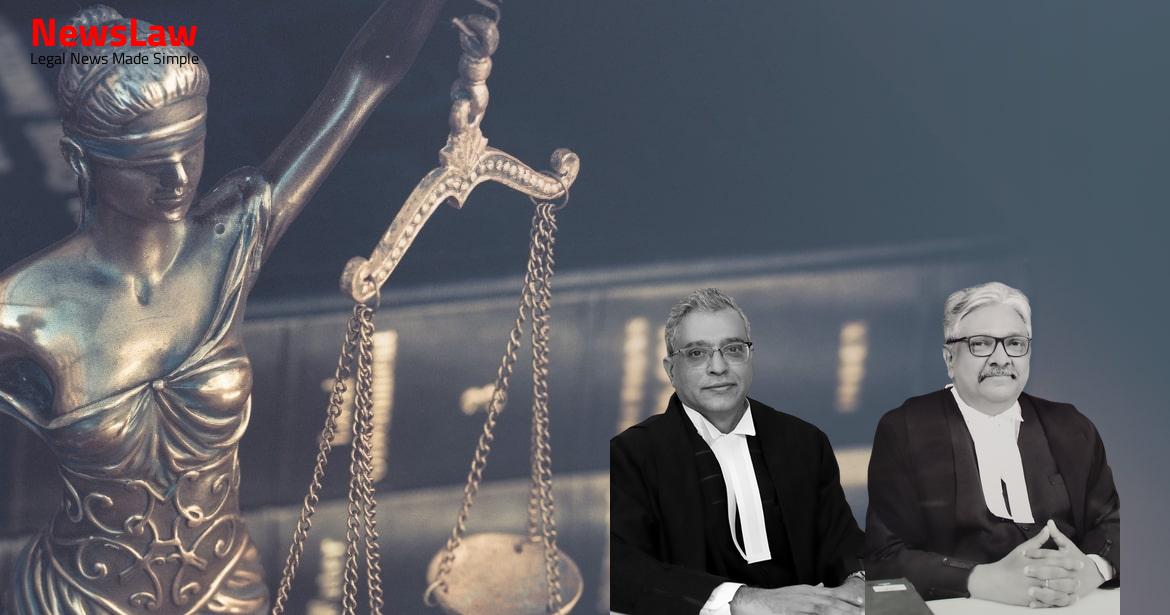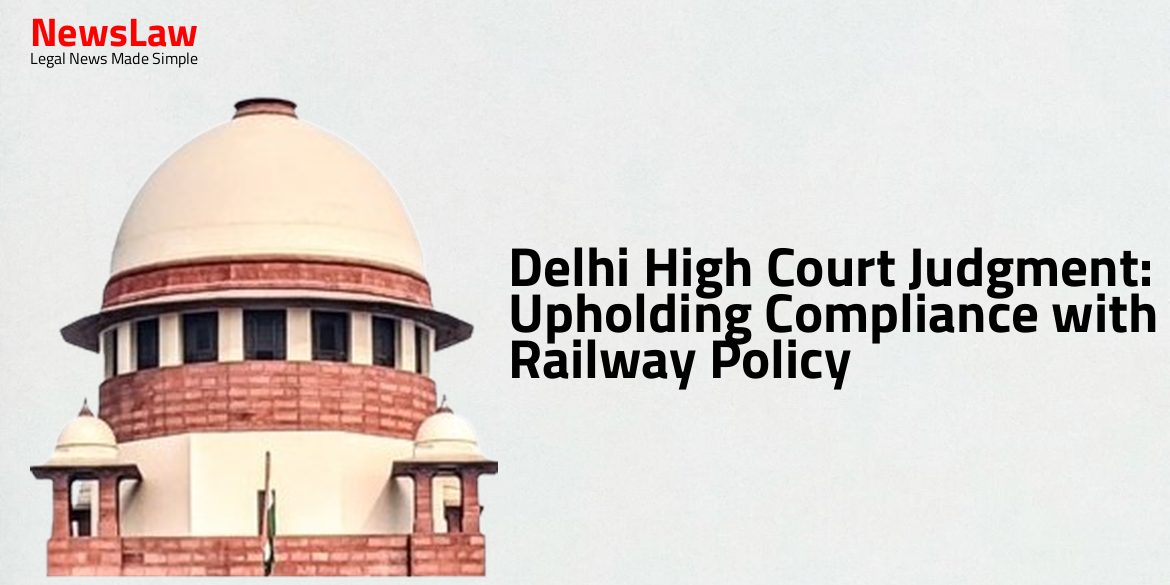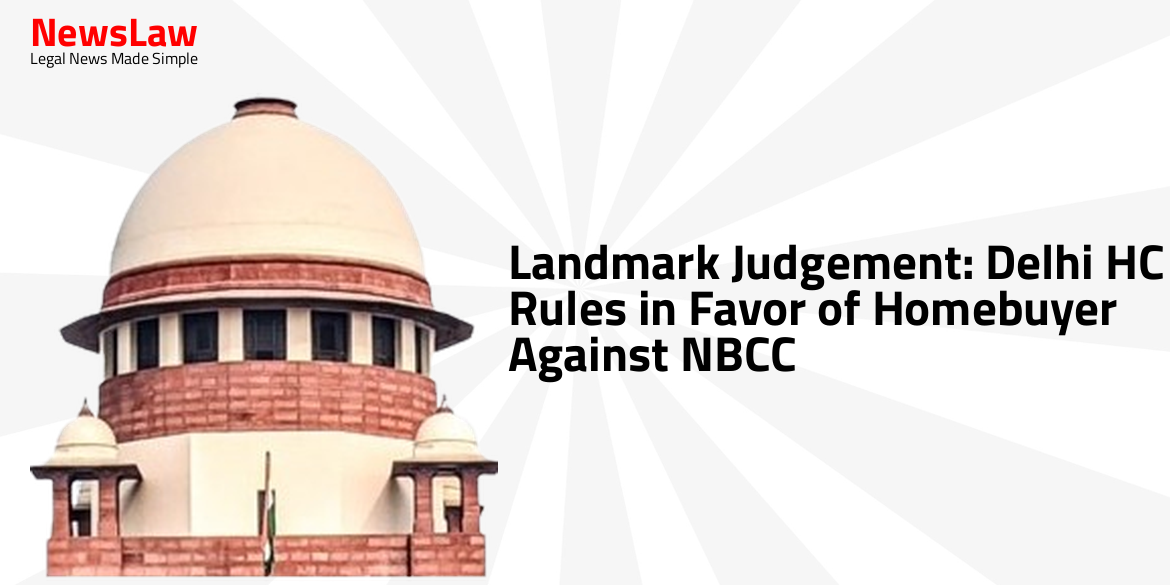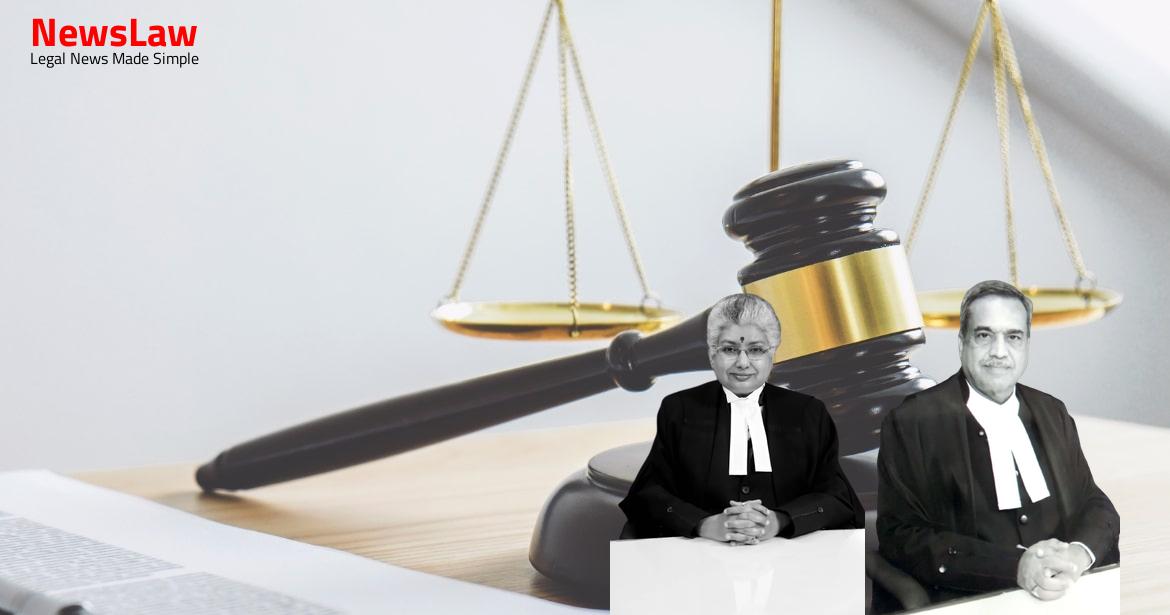Delve into the nuanced legal analysis of waiver of rights in eviction proceedings, focusing on the significance of timely objections and compliance with legal requirements. The court’s interpretation and application of laws regarding eviction notices and the principle of waiver are crucial aspects to consider in similar cases. Follow our detailed analysis to gain insights into this complex legal issue.
Facts
- The High Court allowed the writ petition filed by the respondent due to non-compliance with the notice requirement under the proviso of Section 21(1)(a)
- The respondent’s appeal was initially dismissed by the appellate authority on 21.07.2016
- The Rent Controller ordered eviction of the respondents on 16.05.2013
- The High Court, in the impugned order, allowed the writ petition
Also Read: Legal Analysis of Interchange Fee Taxation Dispute
Issue
- The focus of the issue is determining if the application filed within the three-year period can be considered.
- The requirement of giving the tenant a notice period of not less than six months before filing the eviction application was highlighted in the judgment.
Also Read: Analysis of Burden of Proof in Wrongful Termination Cases
Arguments
- Mr. Joy Basu, senior counsel for the appellants, pointed out that the application was filed after the expiry of six months from the date of the notice.
- He highlighted that the notice dated 22.12.2007 was followed by the application filed on 20.11.2008.
- Mr. Basu argued that even if the notice did not comply with the legal requirements, the conduct of the tenant indicated a waiver of his rights.
- He referred to a previous judgment of the Court in Martin & Harris Ltd. v. VIth Additional Distt. Judge (1998) 1 SCC 732 to support his argument.
- The tenant did not set up any objection in the reply notice.
- This is a crucial aspect of the case under consideration.
- Failure to raise objections during the specified period may have implications on the outcome of the case.
Also Read: Legal Analysis: Exam Answer Key Discrepancy
Analysis
- The Court considered the argument of waiver based on the principle of protecting the tenant’s rights under the statute.
- The tenant did not object to the eviction proceeding timing when filing the appeal before the appellate authority.
- The High Court found that the appellant had waived the contention of the suit being premature as it was not raised earlier.
- The Court emphasized that protection granted by law can be waived by the party benefiting from it.
- The notice requirement under the proviso was deemed fulfilled, despite objections to its validity by the tenant.
- The appellant had opportunities to contest the validity of notice timing but did not do so, leading to a waiver.
- Judicial discipline was highlighted as a reason not to base decisions on earlier erroneous views.
- The High Court’s decision of rejecting the appellant’s claim was upheld due to non-compliance with the six-month notice requirement.
- Section 21 of the Specific Relief Act allows the prescribed authority to order the eviction of a tenant from a building if certain grounds are satisfied.
- One ground for eviction is if the building is required by the landlord or their family for residential, professional, trade, or charitable trust purposes.
- Another ground is if the building is in a dilapidated condition and needed for demolition and new construction.
- There are specific conditions regarding the timing of the landlord’s purchase of the building in relation to eviction on the grounds of requirement for personal use.
- The Court overcame the objection based on the proviso incorporating the provision of public policy.
- A Bench of three learned Judges upheld the view taken in a previous judgment.
- The decision in the case of Nirbhai Kumar v. Maya Devi & Ors. was discussed.
- Learned Senior Counsel, Shri Rao, for the appellant referenced the case of Badri Prasad v. Nagarmal [AIR 1959 SC 559 : 1959 Supp (1) SCR 769].
- In the Badri Prasad case, a suit filed by an unregistered company was examined.
- The second proviso under Section 21 of the Act specifies that in cases of non-residential premises or buildings let out exclusively for non-residential purposes, compensation not exceeding two months’ rent can be awarded.
- A building in this case was let out exclusively for non-residential purposes.
- The issue regarding the maintainability of the suit based on this contention was considered as a pure question of law.
- A decision of the Privy Council was referred to, emphasizing that no court can enforce as valid something that competent enactments have declared invalid.
- The Court also cited a past judgment where objections regarding defective notice were deemed capable of being waived.
- The present case was noted to have a stronger foundation on facts compared to the case referenced.
- If at all there is a case for waiver, this would be one.
Decision
- No orders as to costs.
- The order of the Rent Controller, as affirmed by the appellate authority, will stand restored with the modification that the appellant s will pay a sum of Rs.30,000/- to the respondents within a period of two months.
- The payment shall be made by depositing the sum within one month before the appropriate Court concerned.
- Upon deposit, the respondents can withdraw the said amount.
- The appeal is allowed and the impugned order is set aside.
Case Title: MAHESH KUMAR AGARWAL (DEAD) BY LRS Vs. NARESH CHANDRA . (2021 INSC 843)
Case Number: C.A. No.-007554-007554 / 2021



